Heather Rose is undeniably proud of her new memoir. But the acclaimed Tasmanian author admits the process of writing such a heartfelt confessional was also “excruciating” and “harrowing”.
“It was a hard book to write,’’ the 58-year-old says, as she chats to TasWeekend from her beachside home outside of Hobart.
“It really took everything. Over eight years there were a lot of cups of tea, a lot of tears, going away for the weekend just to get away from it, and swimming in the sea. Anything I could do to keep nurturing myself through the process. It was harrowing, there’s no question about it.’’

The book, Nothing Bad Ever Happens Here: A Memoir of Loss and Discovery, is a deeply personal collection of intertwined stories filled with reflections on love, death, spirituality, creativity and healing, spanning from Rose’s childhood to the present day.
The memoir begins with some of her earliest memories – including the chaos of the approaching 1967 bushfires when Rose was only 2½ years old.
And while those fires were devastating for so many Tasmanians – burning through 652,000ha of land, destroying 1300 homes, leaving 7000 people homeless, with 64 people dead and 900 injured – it was actually an incident 10 years later, when Rose was 12, that had the most profound impact on her life and the life of her extended family.

She details the heartbreaking moment her 15-year-old brother Byron and their 66-year-old grandfather died in a boating accident at Saltwater River on the Tasman Peninsula, leaving her family irreparably altered.
“So many things followed on from that very serious event at the start of the book, so many things impacted all of our lives,’’ Rose says.
She says reliving those memories and emotions in order to share her experience with readers was immensely difficult but also cathartic.
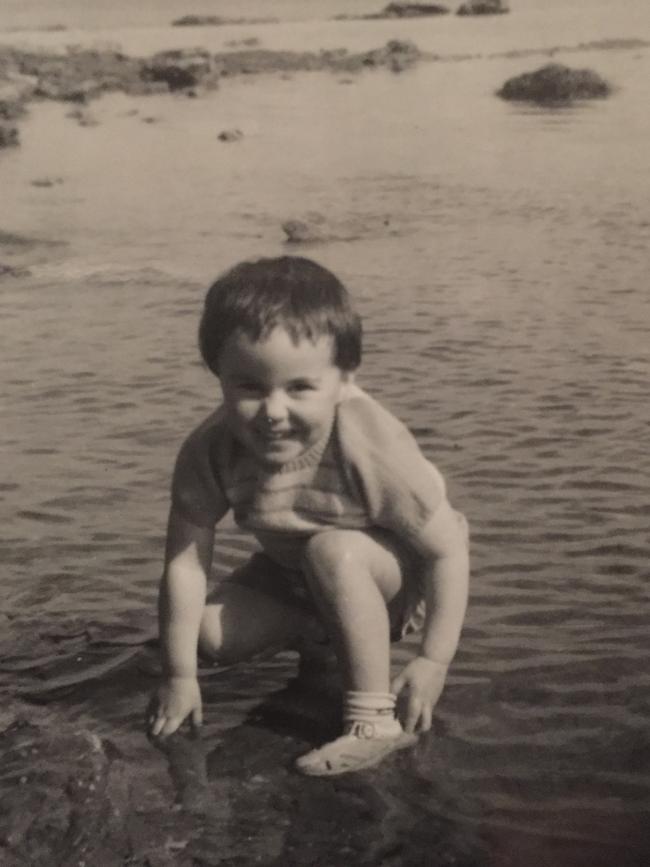
“It was harrowing,’’ says Rose, who would often emerge from a day of “excruciating” writing and collapse into the arms of her partner for emotional support.
“My partner and my girlfriends, I couldn’t have finished it without them.
“But what I’ve loved, as my family members have read the memoir in the lead-up to the launch, is that there’s been a lot of healing.
“My father said he’s so grateful I wrote the book, because we all needed it.’’
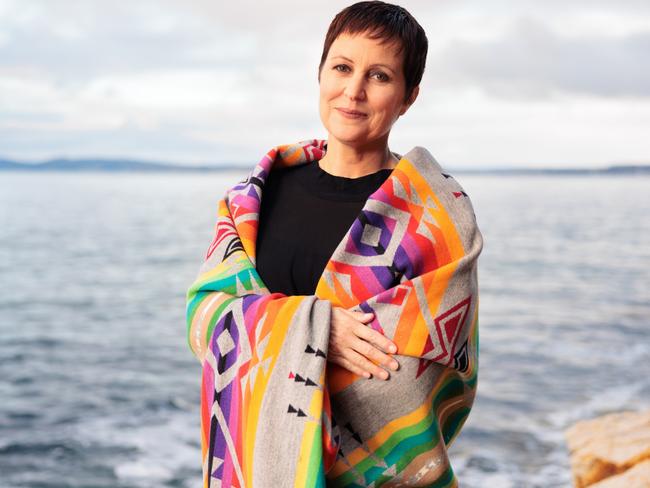
Rose published her first novel, White Heart, in 1999, followed by The Butterfly Man (2005) and The River Wife (2009), with all three set in Tasmania. The Museum of Modern Love, which is set in New York, was released in 2016 and won the Stella Prize in 2017. Bruny followed in 2019, winning the General Fiction Book of the Year in the Australian Book Industry Awards. Rose has also co-written three children’s books – Finding Serendipity (2013), A Week Without Tuesday (2015) and Blueberry Pancakes Forever (2016) – with friend and fellow Tasmanian author Danielle Wood, under the pen name Angelica Banks, as part of the Tuesday McGillycuddy adventure series.
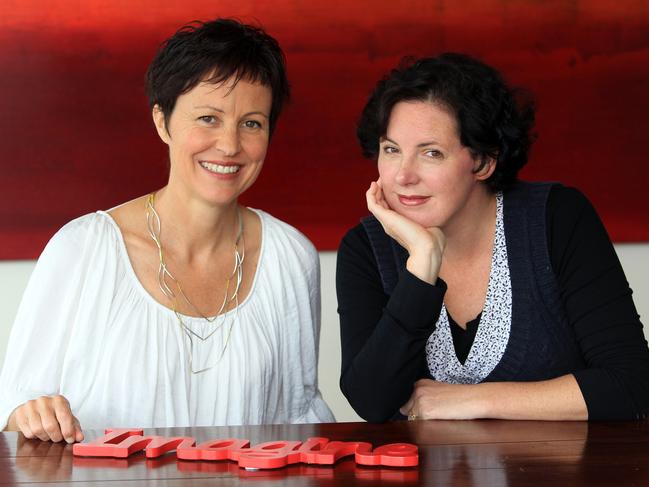
But despite her wealth of experience and the string of accolades her writing has attracted, Rose says her memoir – her ninth book – was by far the most difficult to produce.
“It’s been the hardest book I’ve ever written,’’ she says.
“I’ve never written a book of non-fiction before and it demanded a whole new set of skills.’’
Sharing the intricate details of your life, when you’re typically a private person who shies from the public eye, was also a challenge for Rose.
“My nature is to be reclusive,’’ she says.
“I have tried to avoid a public life as much as I can and being a writer I need a lot of time alone. I’m an introvert by nature ... I might appear like an extrovert, but I’m an introvert.
“So sharing [the personal stories in the book] was really hard.
“But the memoir demanded to be written, and even though I had so much doubt about it over the years, there were strange things along the way that reassured me I was doing the right thing.’’
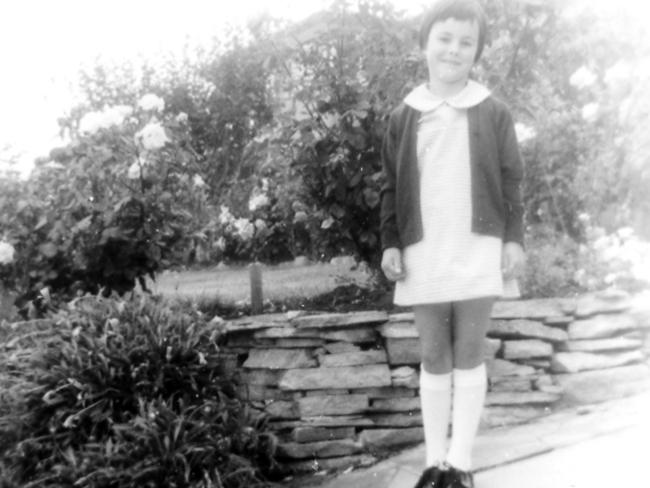
Rose felt a lot of pressure to find her own authentic voice and accurately represent the other characters in her memoir to ensure her family’s story was told factually and compassionately.
“We novelists tend to hide ourselves in all of our characters,’’ she says.
“In a memoir, the main character is you.
“Finding a voice in the work that felt authentic to me, it took a long time to dig deep enough. I had to learn to write with an almost gruesome honesty.
“The people within the pages are real people I have loved and learned from. It’s a huge responsibility to share stories as authentically as possible and with as much love as possible.’’

Rose says it would have been easier to write a sanitised version of her life story, leaving out details of her relationship breakdowns, her dabbles with drugs during her travels through Asia in her early 20s, or her more recent struggles with illness.
But she felt it was important to lay all her cards on the table and, as a result, she has produced a heartfelt read that is refreshing, raw and real.
The memoir also gives an insight into the genesis of her earlier novels and she hopes her loyal followers will enjoy having that knowledge, as well as enjoying the memoir more broadly.
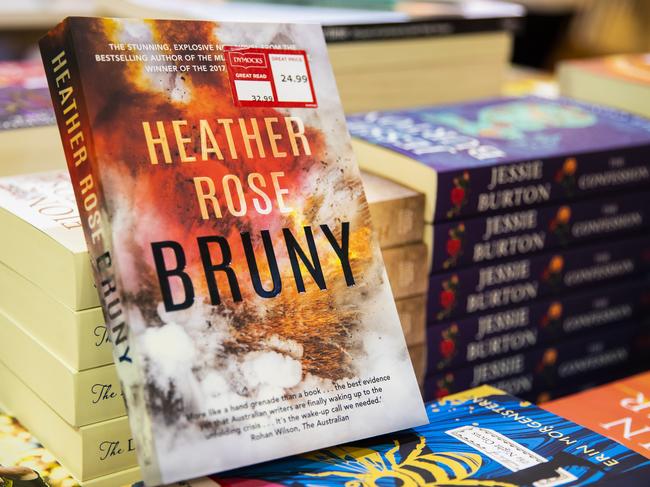
“If I’m going to write a book, I’m going to give it everything,’’ Rose says.
“And I gave it everything.
“I wanted it to be as ruthlessly honest as I could make it. I felt I owed everybody, especially the readers who have read my novels, a sense of who had been at the heart of all those books.
“I wanted people to have something accessible, that felt immediate to them, something that they could relate to.’’
When Rose published her first novel, Tasmania was a tiny, little-known island at the bottom of the world and the majority of her readers were Tasmanians. But in the two decades since, the state has attracted global attention and has also become well-known for its high calibre of literary talent, exposing her work to a wider, international audience.

“There have been no more loyal readers than my Tasmanian readers,’’ she says.
“What I know is that readers are infinitely kind and Tasmanian readers are the kindest of all. I am so grateful for that local support ... I owe Tasmanians my career.
“Tasmania is such a creative wellspring, there are so many great writers in Tasmania ... the quality of writing and the quality of novels keeps getting better and better – it really sets the bar across Australia. It’s an inspiring and nurturing community to live amongst.’’
Rose’s latest book, a compilation of personal stories, penned over many years, started as a whopping 130,000 words, which she painstakingly whittled down to 60,000 words.
“I’ve written in notebooks all my life,’’ she says.
“They became the basis for the book.
“I’ve had some of the stories for quite a while ... there’s one from when I took my son on the Overland Track when he was 13, and he’s 33 now.
“There were stories from travelling, people I’d met, essays about writing, funny and dark experiences that I’d written down over the years. I brought them together and it was a huge book.’’

So then she had to work out what to keep and what to ditch.
“It was about finding that sense of a narrative arc,’’ Rose says.
“What is the narrative arc of my life? What is the thing that kept drawing me forward, keeping me curious? What’s been at the heart of my life?’’
Although the memoir has not officially been released – it will launch on November 1, with a sold-out event hosted by Fullers at the RACV Hobart Hotel on November 3 – it has already attracted high praise, with reviewers labelling it “dazzling and devastating” and an “extraordinary life story, extraordinarily told” while another says Rose takes readers “to the edge of a volcanic crater of grief, passion and spirituality’’.
Meanwhile the author describes the memoir as being “about spiritual curiosity, and the adventures that flowed from that curiosity’’, with some of her more unusual experiences involving sun dancing in the US and long days of meditation at a monastery in Asia.
“I started the memoir when I was 50, I wasn’t very well at the time,’’ Rose says.
“I started the memoir because I wanted to capture some of the stories for my children – they’re all grown up now.
“I wanted to give it as a gift for my children ... to give them a sense of how they might live their lives with courage, against all odds, despite the challenges.
“How it’s possible to be loving and joyful and compassionate through all sorts of adversity.
“Physical health has played a big part in my life. There have been some pretty significant challenges and there have been powerful influences that have helped along the way.’’
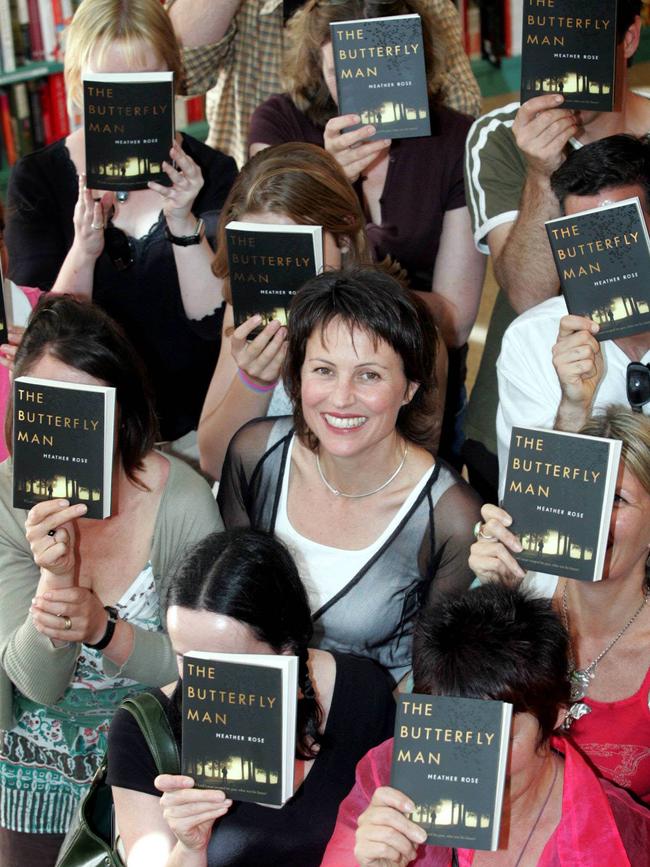
Rose says her three children “love” the finished product.
“I was most worried about my parents, but they have both been generous about it, although I am sure it wasn’t easy for either of them to read,’’ she says.
“My sister read drafts in various forms over several years. She has a very good memory so that was helpful.
“And I gave it to my children to read ahead of publication, too.
“I said, ‘if there’s anything you want me to change please let me know’. But they didn’t want to change anything.
: They were just so delighted to have it captured somehow, because it’s also
their story.’’

Rose has already started writing her next book, her first attempt at historical fiction, which will be set in Tasmania in the 1830s.
“I’m having a lot of fun, I’m finding out a lot about my family history from 200 years ago,’’ Rose says.
She’s also waiting with anticipation as two of her novels – Bruny and The Museum of Modern Love – are set to be adapted to the screen, with filming on the projects due to start next year.
Film producer Sue Maslin was captivated by Bruny and knew it would also make a wonderful adaptation for television. The producer behind the feature film The Dressmaker, starring Kate Winslet and Judy Davis, is now working with fellow producer Charlotte Seymour to develop a six-part thriller based on Rose’s best-selling work of fiction. The project has attracted funding from Screen Tasmania.

Meanwhile, another of Rose’s award-winning novels, The Museum of Modern Love, is being adapted for the big screen by award-winning film producers Nick Batzias and Virginia Whitwell, of Good Thing Productions, whose most recent feature, Nitram, won acclaim at Cannes Film Festival in 2021.
But for now, Rose is waiting with bated breath to see what readers think of her deeply personal memoir, which is also available in audiobook form, which she narrated herself.
“I think it has made me more brave,’’ she says of sharing her story with the world.
“It has made me clearer about what’s OK and what’s not OK. I think it has made me feel both stronger and more vulnerable.’’

Revisiting traumatic stories from her past had been painful, but also surprisingly restorative.
“In a way, of course, the process of rewriting is retraumatising but it also offers the possibility of healing,’’ Rose says.
“I think the pain of reliving events over and over again softened me.
“It has been a healing process. It feels like it has left me with my own coda for love.
“And I might not have discovered that quite so fully if it wasn’t for the last eight years.’’•
Heather Rose’s memoir, Nothing Bad Ever Happens Here (Allen & Unwin, RRP$32.99) will be released on Tuesday, November 1.


100 must-do Tassie experiences under $100
The cost of living continues to rise, but Tasmanians still want to get out and enjoy life, especially in winter. Find inspiration in our mega list of 100 distinctly Tasmanian things to do for under $100
New series shines light on muttonbirding, wild Bass Strait island
This powerful landmark series, set against the raw beauty of Great Dog Island, is a deeply personal reckoning with heritage, fatherhood and the fragile continuity of an Indigenous tradition